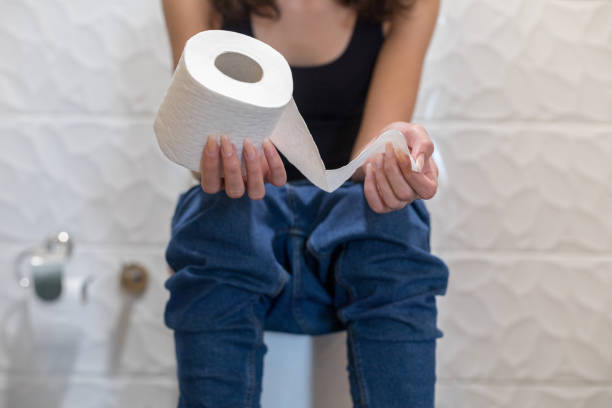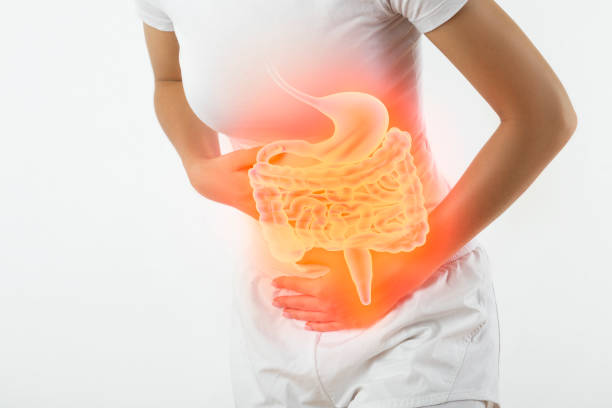Does Creatine Cause Constipation? Exploring This Common Side Effect
Does Creatine Cause Constipation? The Truth About This Common Concern
Creatine is a popular supplement used to boost strength and muscle growth. However, some users report gastrointestinal issues, including constipation.
This article explores whether creatine supplementation truly causes constipation, factors that contribute to this issue, and how to manage potential side effects.
Read on to separate facts from myths and make informed decisions about your creatine intake.
Article Outline
- What Is Creatine and Why Is It Popular?
- How Does Creatine Work in the Body?
- Can Creatine Cause Constipation?
- Why Constipation Might Occur While Taking Creatine
- Understanding the Gastrointestinal Effects of Creatine
- Side Effects of Creatine Supplementation: Beyond Constipation
- Preventing Constipation While Using Creatine
- Does Creatine Monohydrate Differ in Side Effects?
- How to Take Creatine Supplements Safely
- Final Thoughts: Creatine, Constipation, and Your Health
What Is Creatine and Why Is It Popular?
Creatine is a naturally occurring compound stored in muscles and the brain. It supports energy production during high-intensity activities like weightlifting or sprinting.
Creatine supplementation is widely used by athletes and fitness enthusiasts to enhance strength, endurance, and muscle growth.
For a more in-depth overview of its benefits, check out the Creatine Supplements Ultimate Guide.
How Does Creatine Work in the Body?
Creatine works by increasing phosphocreatine stores in your muscles, allowing for faster regeneration of ATP, the body's primary energy molecule.
Supplementing with creatine has been shown to improve performance in short bursts of activity, promote muscle repair, and support brain health.
Curious about the science? Dive deeper into How Does Creatine Work.
Can Creatine Cause Constipation?
There is limited evidence to suggest that creatine supplementation directly causes constipation. However, some users report experiencing constipation after taking creatine.
These instances may result from factors such as dehydration, inadequate fiber intake, or individual differences in how the digestive system responds to creatine.
For more on this topic, you might explore whether Creatine Makes You Poop.

Why Constipation Might Occur While Taking Creatine
- Dehydration: Creatine draws water into muscle cells to aid recovery and performance. If water intake is insufficient, dehydration may lead to symptoms like constipation.
- Low Fiber Diet: A lack of dietary fiber can slow bowel movements, especially when combined with creatine's water-retention effects.
- High Dosage: Taking large doses of creatine, especially during the "loading phase," may stress the digestive system, causing discomfort and irregular bowel movements. Learn more about the Creatine Loading Phase.
Understanding the Gastrointestinal Effects of Creatine
While creatine is generally safe, some users experience gastrointestinal side effects such as bloating, cramping, and diarrhea.
These issues typically arise from improper dosage or poor-quality supplements.
Micronized creatine monohydrate, a more refined version, is less likely to cause digestive discomfort.
For insights into different supplement forms, see A Guide to Supplement Forms.

Side Effects of Creatine Supplementation: Beyond Constipation
Although rare, side effects associated with creatine supplementation may include:
- Gastrointestinal discomfort such as bloating or cramps.
- Weight gain due to increased water retention in muscle cells.
- Mild digestive issues, especially when taking high doses.
These effects are generally mild and temporary, subsiding with proper usage.
A comprehensive overview of these side effects can be found in Creatine Supplementation Side Effects.
Preventing Constipation While Using Creatine
- Stay Hydrated: Drink plenty of water daily to counteract creatine's water-drawing effect.
- Increase Fiber Intake: Eat foods rich in fiber, such as fruits, vegetables, and whole grains, to support healthy bowel movements.
- Adjust Dosage: Stick to recommended doses (3–5 grams daily) and avoid excessive loading phases unless necessary.
- Take Creatine with Meals: Consuming creatine alongside food may reduce the likelihood of gastrointestinal discomfort.
For more practical tips, visit Creatine Dietary Considerations.
Does Creatine Monohydrate Differ in Side Effects?
Creatine monohydrate is the most studied and widely used form of creatine. Research suggests it is safe and effective when used correctly.
Micronized creatine monohydrate, in particular, is easier to digest and less likely to cause side effects like bloating or constipation.
For comparisons, check out Creatine HCL vs Monohydrate.
How to Take Creatine Supplements Safely
To maximize the benefits of creatine while minimizing potential side effects:
- Follow the recommended daily dose of 3–5 grams.
- Choose high-quality creatine supplements from reputable brands.
- Stay consistent with water and fiber intake.
- Monitor your body's response to creatine and adjust usage if necessary.
For advice on supplement forms and safe usage, read Creatine Monohydrate Gummies.

Final Thoughts: Creatine, Constipation, and Your Health
Creatine supplementation is safe for most individuals when used correctly. Although constipation is not a common side effect, some users may experience it due to dehydration, low fiber intake, or improper dosing.
Staying hydrated, eating a fiber-rich diet, and choosing high-quality creatine supplements can help prevent digestive issues.
Key Points to Remember:
- Creatine supports muscle growth and energy production.
- Some users report constipation, often due to dehydration or low fiber intake.
- Prevent constipation by staying hydrated, eating fiber, and following recommended dosages.
- Micronized creatine monohydrate is less likely to cause side effects.
- Always monitor your body's response and make informed decisions about supplementation.
This balanced approach ensures you reap the benefits of creatine supplementation without unnecessary discomfort. For a deeper dive into the pros and cons, see Creatine Myths and Creatine Pros & Cons.
References
Antonio, Jose, and Jeffrey R. Rawson. "Gastrointestinal Distress after Creatine Supplementation in Athletes: Are Side Effects Dose Dependent?" Journal of the International Society of Sports Nutrition, vol. 4, no. 1, 2007, pp. 1–5. SpringerLink, https://www.researchgate.net/publication/5479908_Gastrointestinal_Distress_After_Creatine_Supplementation_in_Athletes_Are_Side_Effects_Dose_Dependent.
Kreider, Richard B., et al. "International Society of Sports Nutrition Position Stand: Safety and Efficacy of Creatine Supplementation in Exercise, Sport, and Medicine." Journal of the International Society of Sports Nutrition, vol. 14, no. 18, 2017, pp. 1–18. BioMed Central, https://jissn.biomedcentral.com/articles/10.1186/s12970-017-0173-z.
Kim, Hyeon Woo, et al. "Adverse Effects of Creatine Supplementation: Fact or Fiction?" Journal of Sports Science and Medicine, vol. 4, no. 1, 2005, pp. 1–8. ResearchGate, https://www.researchgate.net/publication/12324676_Adverse_Effects_of_Creatine_Supplementation.
For More Training Advice + Diet and Lifestyle visit us Combat Creatine
PS: Make sure you check out the rest of our Creatine Guides:
Creatine
Creatine Supplements Ultimate Guide
Creatine Supplementation Side Effects
Best Creatine Monohydrate Gummies Review: Top 10 Best Creatine Gummies













